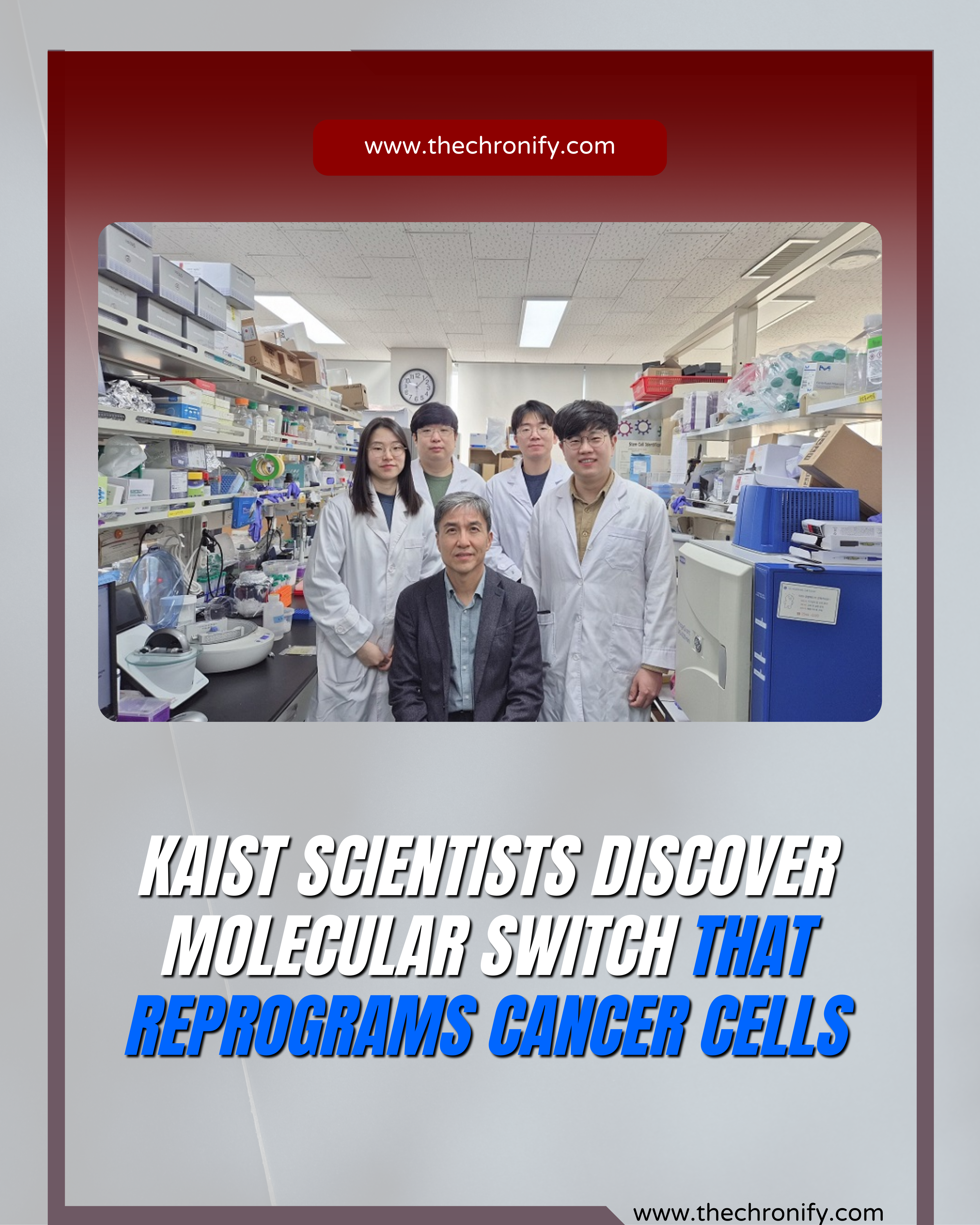KAIST Researchers Unveil Breakthrough Molecular Switch That May Reverse Cancer Cell Transformation
In a significant scientific development, researchers from the Korea Advanced Institute of Science and Technology (KAIST) have discovered a molecular “switch” capable of reversing cancer cells to a state resembling normal cells. The breakthrough could pave the way for a new approach in cancer treatment—one that reprograms cancer cells rather than destroying them.
Announced on February 5, the research was led by Professor Kwang-Hyun Cho from KAIST’s Department of Bio and Brain Engineering. The team developed an innovative method to identify the exact moment when healthy cells begin transforming into cancer cells—a process known as tumorigenesis. By capturing and analyzing this critical transition phase, they were able to pinpoint a genetic control mechanism that can potentially reverse the cancer process.
The “critical transition” is a concept where a system undergoes a sudden and drastic change in state—like water turning into steam at boiling point. Applying this concept to biology, the research reveals that cells experience a similar tipping point when genetic and epigenetic factors push them toward malignancy.
Using advanced systems biology tools and single-cell RNA sequencing data, the team created a computational model of the gene regulatory network responsible for this transition. This allowed them to simulate the process and identify key molecular regulators—effectively, switches—that influence whether a cell becomes cancerous or reverts to a normal state.
The research was successfully tested on colon cancer cells, where the team observed a reversal of malignant characteristics after manipulating the identified molecular pathways. The study was carried out in collaboration with Seoul National University, which provided colon cancer organoids (miniature tissue cultures grown in vitro), and involved contributions from KAIST researchers Dr. Dongkwan Shin (currently at the National Cancer Center), Dr. Jeong-Ryeol Gong, and PhD student Seoyoon D. Jeong.
Professor Cho emphasized the importance of the findings:
“We have discovered a key genetic switch that can change the fate of cancer cells by capturing the crucial moment just before irreversible malignancy sets in. This provides deeper insight into how cancer develops at the genetic network level—something that has remained elusive until now.”
Published in the international journal Advanced Science by Wiley on January 22, this research sets the stage for a new frontier in cancer therapy. Rather than focusing solely on killing cancer cells, future treatments might center around reprogramming them.
The project was supported by the National Research Foundation of Korea, the Korea Health Industry Development Institute (KHIDI), and the Ministry of Science and ICT under several national research programs.

